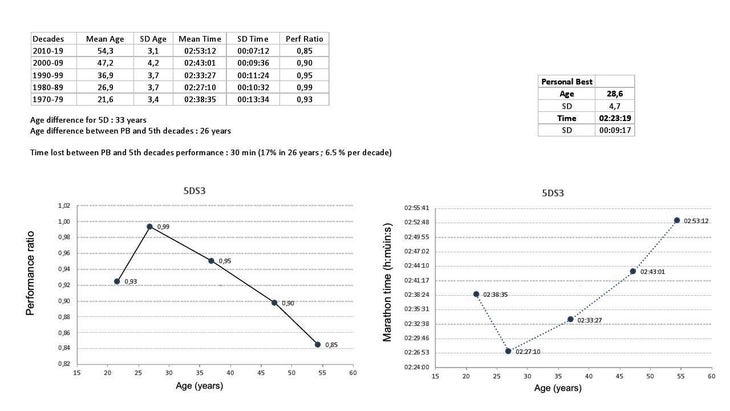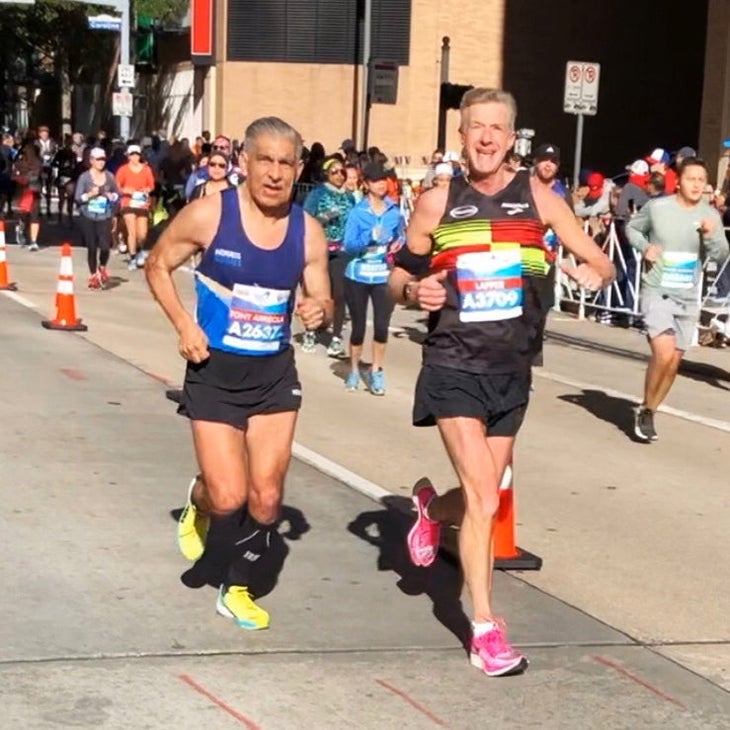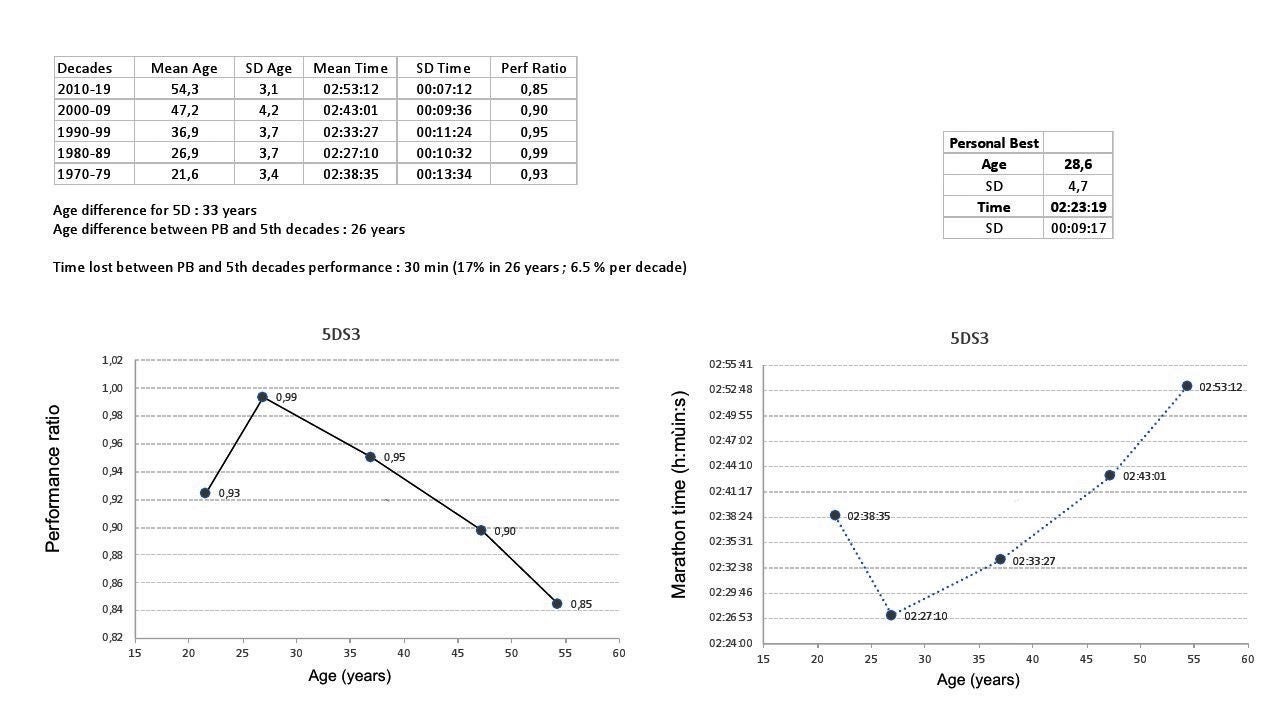A few tough men—and one woman—have run a marathon under 3 hours in every one of the five decade since the ’70s. Now that the 2020s have rolled around, some of them are still fit and fast enough to aim for their 6th decade sub-3. In our first article about the 6DS3 group, we introduced a few of them, and in our second and third articles shared their secrets to longevity and favorite marathon test workouts. In the final article we told how Antonio Arreola and Steve Schmidt became the first runners to accomplish the 6-decade feat on January 19 in Houston.
Just as I was finishing up the final articles about the marathoners trying to achieve 6 Decades Sub 3, I was contacted by a respected French endurance physiologist, Romuald Lepers, PhD. He said he was interested in learning more about the 6DS3 group. I gave him a little data, and he promptly churned out several fascinating analyses.

Of most interest: The runners recorded their personal records at an average age of 28.6 years (and an impressively fast time of 2:23:19). They then achieved their Fifth Decade Sub 3 after another 26 years. From their PR time to their Fifth Decade time, they slowed down at an average rate of 6.5% per year.
Lepers was a new digital friend for me. I wondered if he were an endurance athlete himself. It didn’t take long to discover that he has competed at a high level in triathlon, especially Alpine Triathlons. I sent him an email asking what drew him to the 6DS3 runners. He said it was their many years of consistent training and racing.
Slowing Down the Slowdown
“It is very impressive that these runners lost only about 30 minutes on their best marathon time over 26 years, or 6.5 percent per decade,” he replied. “We usually find that physical performance decreases by about 10 percent per decade in untrained people, a trend that may get worse due to the obesity epidemic, and the low number of adults who meet recommended activity levels. These marathon runners you have written about show that it is possible to limit the effect of age on performance and presumably health.”

I asked a similar question of Mayo Clinic endurance expert Michael Joyner, famed for his early suggestions (in the 1990s) that a sub-2-hour marathon was possible. He replied: “To do what these runners have done, which we might call minimalistic aging, requires motivation, injury prevention, avoiding weight gain, and maintaining training and volume. That’s a big deal. At the same time, it’s important to remember that you don’t need to break 3 hours at age 60 and beyond to stay fit and avoid old-age frailty with its devastating effects on how we live and die.”
Exercise As a Countermeasure
When I mentioned Joyner’s name to Lepers, I received another surprise. While the two have never met, they recently co-authored a review paper for the journal Sports Medicine, titled, “Lifelong Endurance Exercise as a Countermeasure Against Age-Related Decline: Physiological Overview and Insights from Masters Athletes.”
The three main points of this paper:
- Masters athletes are a paradigm of healthy aging because they maintain high exercise levels at advanced ages, and show remarkable physical function compared to their inactive peers.
- Maximum oxygen consumption (VO2max) decreases with age, but lifelong exercise exhibits myriad benefits that may lessen the rate of age-related VO2max loss.
- Given that VO2max is a strong predictor of disease and mortality, these findings support the need to perform high levels of exercise across all ages.
Basically, it’s the 6DS3 series of articles written from an exercise-physiology perspective. It’s nice, and somewhat rare, when real-world people and performance line up with physiology and practical advice about how we all should pursue lifetime fitness.


